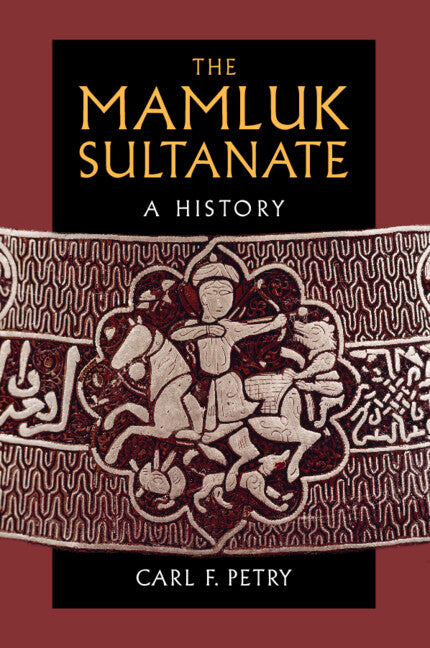The Mamluk Sultanate
A History
Author(s): Carl F. Petry
Couldn't load pickup availability
🚚 Free UK delivery on books (excluding sale). T&Cs apply.
Free click & collect on all orders.
The Mamluk Sultanate ruled Egypt, Syria and the Arabian hinterland along the Red Sea. Lasting from the deposition of the Ayyubid dynasty (c. 1250) to the Ottoman conquest of Egypt in 1517, this regime of slave-soldiers incorporated many of the political structures and cultural traditions of its Fatimid and Ayyubid predecessors. Yet its system of governance and centralisation of authority represented radical departures from the hierarchies of power that predated it. Providing a rich and comprehensive survey of events from the Sultanate's founding to the Ottoman occupation, this interdisciplinary book explores the Sultanate's identity and heritage after the Mongol conquests, the expedience of conspiratorial politics, and the close symbiosis of the military elite and civil bureaucracy. Carl F. Petry also considers the statecraft, foreign policy, economy and cultural legacy of the Sultanate, and its interaction with polities throughout the central Islamic world and beyond. In doing so, Petry reveals how the Mamluk Sultanate can be regarded as a significant experiment in the history of state-building within the pre-modern Islamic world.
- Provides a comprehensive survey of the Mamluk Sultanate in the MENA region aimed at undergraduate students and general readers interested in pre-modern history
- Positions the Mamluk Sultanate within the development of comparative political systems from a global perspective
- Reveals interactions between the wide range of socio-ethnic groups that resided in the Mamluk Empire, showing how this interaction influenced the development of the Sultanate's architectural, literary and religious legacies, including the practice of Sufism
Share


